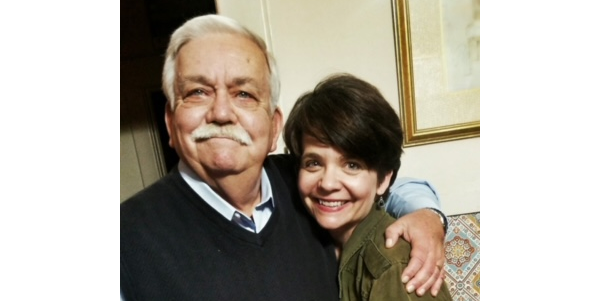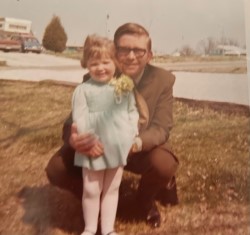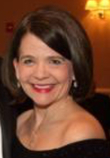Understanding Grief
- Written by Anne Heinrich

Christmas mornings will never be the same.
This year, instead of anticipating and preparing for a festive gathering that would traditionally come later in the day, like we do every Christmas, my brothers and I, along with our mother, were at my father’s bedside as he took his last breaths.
The last moments of his life were surreal, profound and life-altering for the four of us. His passing was not a surprise. At least intellectually, we’d all in our own ways, started to come to terms with the fact that there were simply no further interventions to be pursued that would keep him with us much longer. We had braced ourselves, but as we watched him slip away, the finality of our loss was heartbreaking. It still is.
 We wept. We comforted one another. We touched him and kissed his tired face. We let those closest to us know what had taken place. We tended to the practicalities. And we wept some more. My body physically hurt. Later that evening, I found myself in his closet with my face buried in his shirts, seeking the comfort of his familiar scent. I frantically looked through photo albums, in search of images that would keep him tethered to me in ways that were tangible. Those first few painful days after Dad died, I felt more like the little girl in the grainy photos I’d gathered than the 53-year-old woman with grown children of my own that I am.
We wept. We comforted one another. We touched him and kissed his tired face. We let those closest to us know what had taken place. We tended to the practicalities. And we wept some more. My body physically hurt. Later that evening, I found myself in his closet with my face buried in his shirts, seeking the comfort of his familiar scent. I frantically looked through photo albums, in search of images that would keep him tethered to me in ways that were tangible. Those first few painful days after Dad died, I felt more like the little girl in the grainy photos I’d gathered than the 53-year-old woman with grown children of my own that I am.
We honored Dad with an intimate service that was limited due to the pandemic, but it truly was a love letter to this wonderful man. And then, it was time to get back to the tasks that awaited me: a job, a family of my own to tend to, bills to be paid, meals to be prepared and all the things that seem insignificant when you have just lost a family member, an anchor. That’s when a different stage of grieving took hold. I found myself distracted and irritated at the demands on my attention and time. Nothing brought much joy. The only way I could get through a day without needing to choke back a tearful lump in my throat was to avoid looking at photos of Dad. I found myself eating and drinking too much, staying up too late and picking political fights with strangers on social media. Whenever I did catch myself laughing or experiencing fleeting joy, I felt guilty, as if any pleasure was dishonoring Dad. I’ve caught myself feeling angry that the world has moved on while we’re left to tend our gaping wound on our own. As the days pass, we’re all still numb and expressing grief in our own ways. My artist brothers are working and creating. My Mom, who was Dad’s steadfast caregiver for nine grueling months, is navigating a new singular life for herself one day at a time.
Acknowledging and understanding the grieving process for ourselves and others is a sensibility that everyone should have at the ready. Loss is a fact of life from which nobody is exempt. I’m proud that Mental Health America of Eastern Missouri recently added a new offering to our Wellness Seminar Series called Managing Grief and Loss. Here are just a few of the points from the seminar I found most helpful:
- There is no correct way to grieve. While there are some common trajectories that people experience, loss is personal and the best way to help ourselves and others is to recognize this.
- Grief is not just about death. There are many other changes in life that elicit a grief response: divorce, loss of a job or other major disappointments.
- Grief is not an emotion. It’s a natural process that involves a number of emotional responses and physical changes to the body.
The Wellness Seminars Program is a helpful resource for employers, agencies and civic organizations to encourage mental health and wellness education for their employees and teams. The program offers 11 seminars covering a wide variety of mental health topics. Click here to learn more about Mental Wellness Seminars.
About the author
 Anne Shaw Heinrich is Vice President of Development for Mental Health America of Eastern Missouri.
Anne Shaw Heinrich is Vice President of Development for Mental Health America of Eastern Missouri.






















